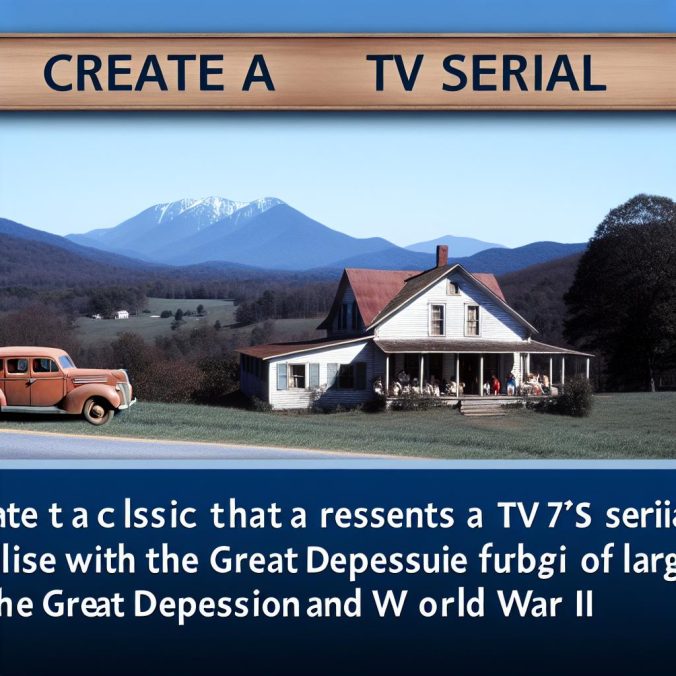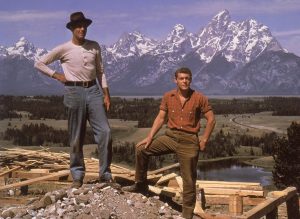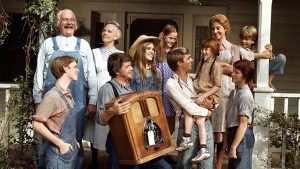The Origins of The Waltons TV Series
The Waltons TV series stands as a testament to the power of storytelling through the medium of television. It first graced American screens in 1972 and continued until 1981, captivating audiences with its depiction of a family navigating the trials of life in the Blue Ridge Mountains of Virginia. Created by Earl Hamner Jr., the narrative was woven from the fabric of his own life experiences, detailed in his book Spencer’s Mountain. The successful adaptation into a 1963 film laid the groundwork for what would become a cherished TV series.
The Impact of “The Homecoming: A Christmas Story”
Before the series began, a television movie titled The Homecoming: A Christmas Story aired in 1971. This movie became a crucial precursor to the series, setting the stage for wider public interest and network investment. By introducing the Walton family and their quaint yet resilient lifestyle, it struck a chord with audiences nationwide. The success of this film convinced the CBS network of the storyline’s potential, leading to the launch of The Waltons as a full-fledged series the following year, in 1972.
The Setting and Plot of The Waltons
At the heart of The Waltons series is its setting during two defining periods of American history: the Great Depression and World War II. The show paints a vivid picture of a large, tight-knit family contending with the economic and social challenges of rural Virginia. The narrative depth is enriched by focusing on John Walton Sr., Olivia, and their seven children, alongside the wise elders, the grandparents. The plot deftly intertwines their individual stories while collectively highlighting themes of resilience, shared responsibility, and unwavering family values.
Cast and Characters
An ensemble cast breathed life into The Waltons, each actor contributing to the series’ enduring appeal. Richard Thomas, portraying John-Boy Walton, emerged as the voice of the series, his narrative voice providing introspective and poignant insights into the family’s life. John-Boy’s character arc captures the ambitions and struggles of a young writer deeply connected to his family’s roots. Richard Thomas’s portrayal contributed significantly to the authenticity and depth of the series.
Ralph Waite as John Walton Sr. and Michael Learned as Olivia Walton portrayed the strong parental figures of the family, embodying the values of hard work, integrity, and compassion. The grandparents, played by Will Geer and Ellen Corby, added layers of generational wisdom and warmth. The chemistry among the cast members allowed viewers to see the portrayals as genuine, strengthening the emotional bonds with their on-screen characters.
The Series’ Legacy and Cultural Impact
The nine-season journey of The Waltons left an indelible mark on the landscape of American television culture. Beyond its award-winning performances and story arcs that garnered multiple Emmys and a Peabody Award, the show was instrumental in shaping family-oriented television programming. Its authentic portrayal of family life amidst economic and wartime hardships resonated powerfully with American audiences.
The series carved out a special place in pop culture history by influencing subsequent television narratives and serving as a benchmark for quality family dramas. This influence is extended and reinforced by several reunion movies that reconnect with the original themes and characters, thereby continuing the Walton legacy. These reunions further solidify the show’s impact and sustain its relevance among both original viewers and newer generations appreciating classic television storytelling.
Exploring the Continued Appeal of The Waltons
The continued popularity of The Waltons can be attributed to its emphasis on timeless themes that span beyond cultural and temporal boundaries. Family dynamics are at the heart of the series, with each episode often introducing a lesson or moral standpoint reflective of real-life struggles and triumphs. This focus on moral clarity and ethical perspectives holds universal appeal, offering audiences parallel reflections on their lives.
Another factor contributing to the show’s enduring lure is its aesthetic representation of a bygone era. Through meticulous production design and costuming, viewers are transported back to the simpler times of the 1930s and 1940s. This nostalgic aesthetic not only provides entertainment but also serves educational purposes, helping audiences gain insights into historical contexts and societal changes of that era.
The Significance of Storytelling in The Waltons
Storytelling in The Waltons is a celebration of human experiences, characterized by deep narrative layers that engage viewers on intellectual and emotional levels. Earl Hamner Jr.’s creation reaches the core of storytelling by highlighting common human values such as love, determination, and the quest for self-betterment.
The depiction of everyday life challenges, simple joys, and community spirit echoes a profound message about finding happiness and strength within one’s immediate environment. The Waltons’ ability to maintain their family cohesiveness despite external adversities exemplifies the show’s exploration of the indomitable human spirit.
Contributions to Education and Social Understanding
Educationally, The Waltons serves as a valuable resource for understanding American history and social dynamics during the early 20th century. Through its realistic portrayal, the show offers viewers an entry point to explore topics such as economic hardships, war impacts, and rural life, facilitating conversations around these themes.
Moreover, the show contributes to societal understanding by sensitively addressing topics like gender roles, race, and generational conflicts, inviting viewers to consider perspectives that resonate beyond the timeframe of the series. In doing so, it simultaneously educates and fosters empathy, encouraging viewers to reflect on contemporary social issues in light of historical precedents.
Conclusion: The Enduring Essence of The Waltons
The essence of The Waltons continues to captivate audiences many decades after its original airing. Its reverence for storytelling, combined with its rich character development and depth, has ensured its place in the annals of television history. As an emblem of family solidarity and resilience, the series persists in offering wisdom and inspiration to audiences old and new.
To further delve into the legacy of The Waltons and similar classic television shows, archives and dedicated TV history resources provide valuable materials for exploration. The show’s lasting influence is a testament to its role as a cultural touchstone, affirming its enduring significance in American entertainment history.


